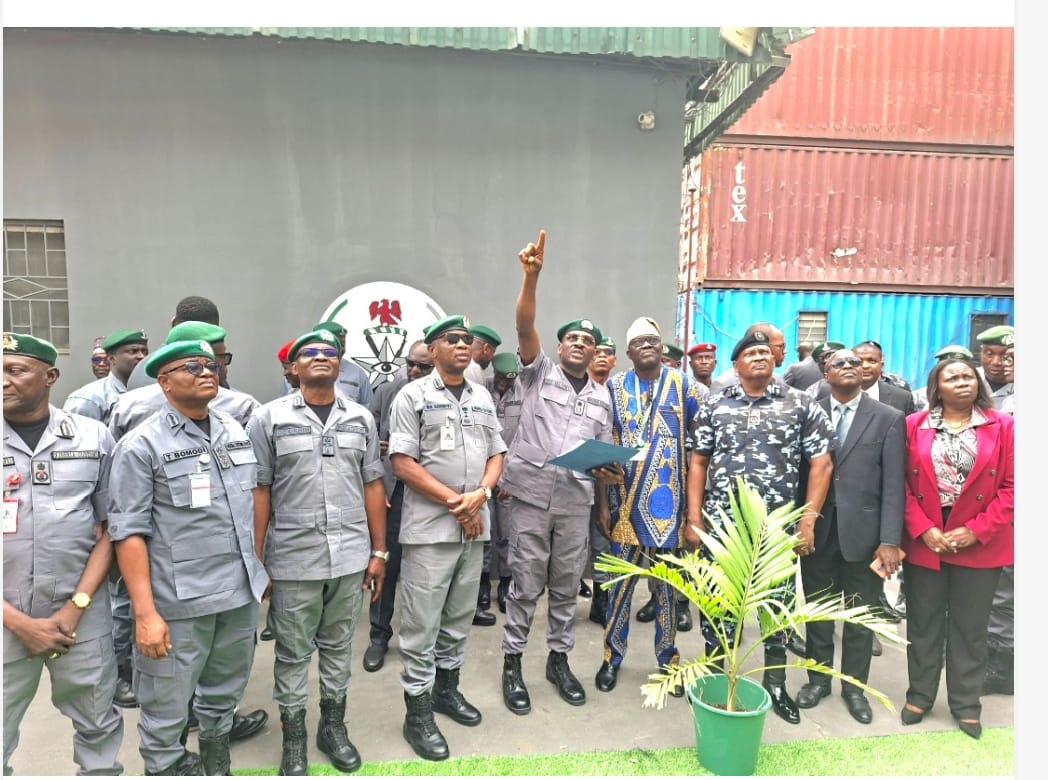
In a major crackdown on smuggling of pharmaceuticals, the Nigeria Customs Service has intercepted and handed over 25 containers loaded with fake sexual performance enhancement pills, unregistered medications, and expired food products valued at ₦9,235,402,973, to the National Agency for Food and Drug Administration and Control (NAFDAC).
Comptroller-General of Customs, Bashir Adewale Adeniyi, who officially handed over the seized items, described the development as a disturbing reflection of a well-coordinated criminal network seeking to undermine national health security. He lamented that the intercepted products pose a severe and imminent danger to public health, warning that such operations are no longer petty smuggling cases but deliberate, sophisticated attacks on the country’s regulatory systems.

Adeniyi disclosed that the seized items were hidden across 21 forty-foot and four twenty-foot containers and included an alarming range of illegal products. These included fake sexual enhancement drugs such as REDSUN and HYEGRA (both sildenafil citrate-based), codeine-laced cough syrups including brands under the CSC label, and injectable antibiotics like oxytetracycline and artesunate. Also discovered were pain relief medications containing diclofenac sodium and paracetamol, many of which carried fake NAFDAC registration numbers.
Beyond pharmaceuticals, the seized cargo also contained expired margarine, spoiled chocolate products, antimalarial drugs like Artepharm-Artequick, veterinary drugs such as albendazole bolus tablets, and consumer goods including Crusader soap. Adeniyi described the entire shipment as part of a “sophisticated and diversified contraband portfolio” designed to infiltrate Nigerian markets and bypass health and safety regulations.
He praised the operational collaboration between the Customs Service and NAFDAC, calling it one of the most effective models of inter-agency synergy. He said the Director-General of NAFDAC and her team provided crucial intelligence—sometimes even in the middle of the night—that played a key role in identifying and intercepting the containers.
The Customs boss emphasized that such results were made possible by the Memorandum of Understanding signed between both agencies, which has enabled rapid, intelligence-led enforcement. He added that the Service remains committed to making Nigeria’s seaports, airports, and land borders impenetrable to smugglers through real-time data sharing and enhanced surveillance strategies.
Adeniyi reiterated that the Nigeria Customs Service will not relent in its nationwide anti-contraband drive and will continue working closely with regulatory agencies to block criminal syndicates attempting to use Nigeria as a dumping ground for counterfeit, expired, or substandard products.
The scale and nature of the seizure, according to port stakeholders, raise serious concerns about the loopholes being exploited in import documentation and screening. Many have called for even stricter pre-shipment inspection processes and harsher penalties for importers found to be engaging in such criminal activity.
With the value of the seized items nearing ₦10 billion, this operation stands as one of the largest pharmaceutical-related busts in recent memory and a sharp reminder of the continuous threat posed by unscrupulous importers looking to profit at the expense of Nigerian lives.















